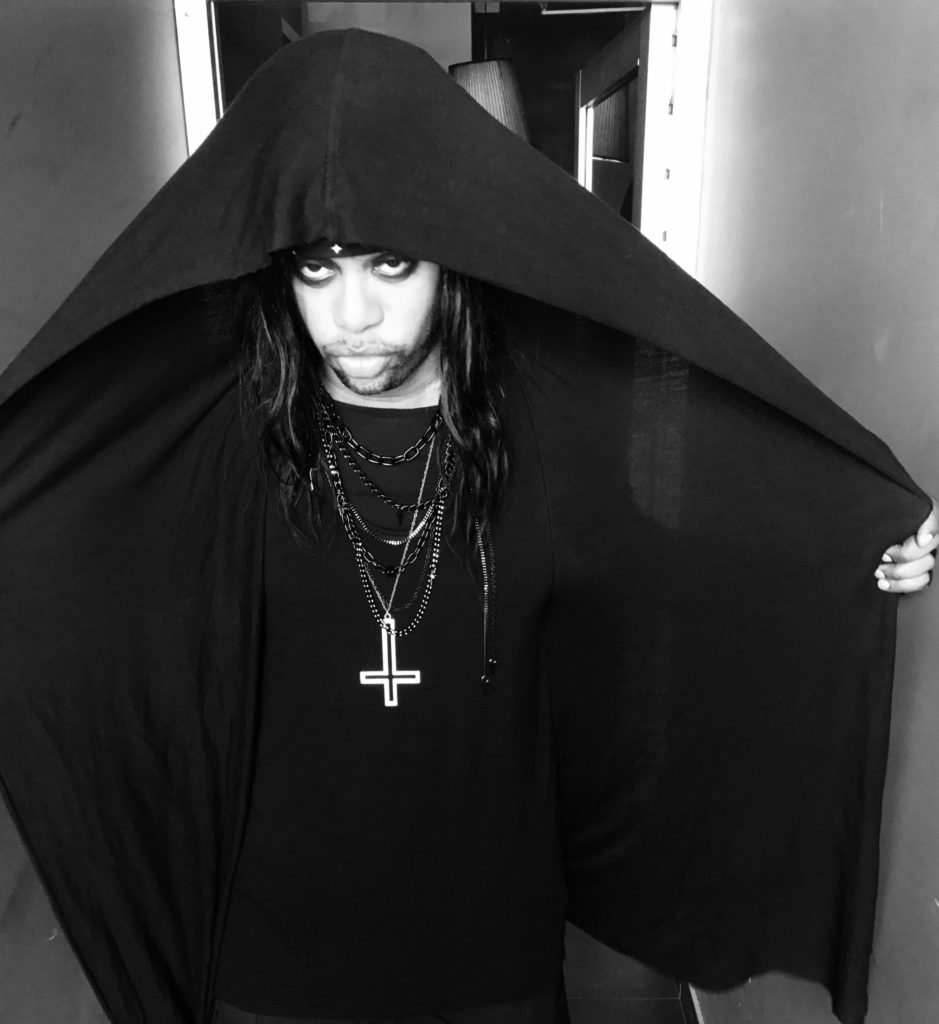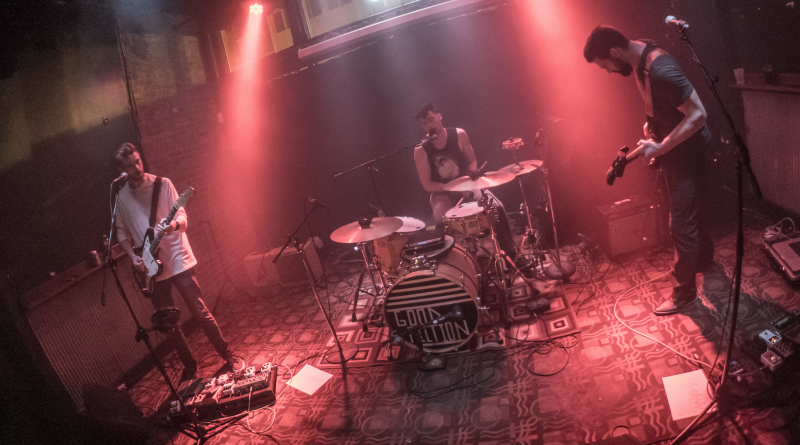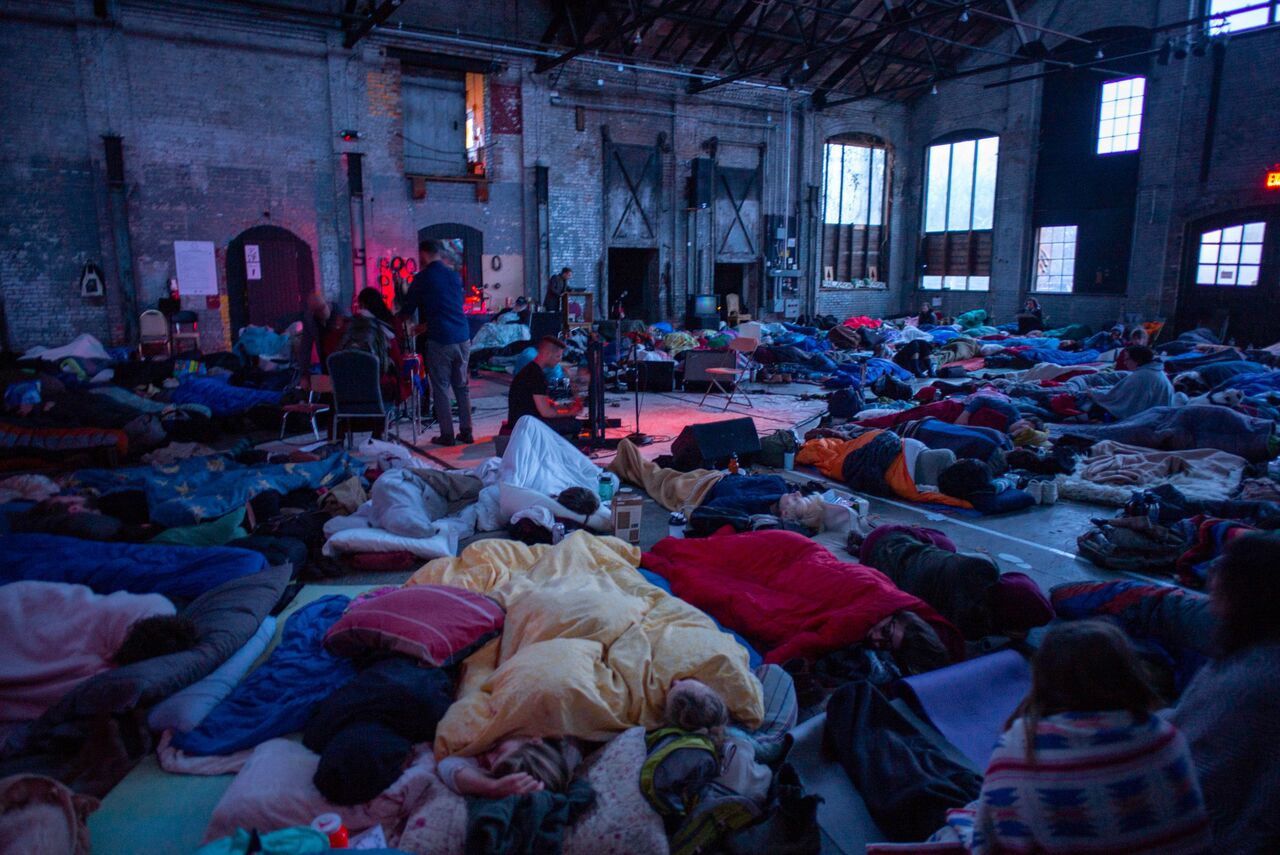The only thing you should expect when first talking to M. Lamar—soprano, diva, composer, artist, actor, author, provocateur—is that you’ll be playing catch up the entire time.
The Mobile, Alabama native came to some mainstream notoriety for sharing a role with his sister Laverne Cox on Netflix’s “Orange is The New Black,” but in the New York art world Lamar is known for his vocal prowess and compositions that force his audience to confront the deep suffering and horror associated with being black in America.
Our conversation starts in bursts and fits, dancing from obscure philosophers, pop culture, our love of Sunn O))) shirts, American history, the civil rights movement and horror films.
Lamar’s 2018 piece Funeral Doom Spiritual combined elements of metal, folk, opera and his stunning vocals to create a modern lament for black suffering. It earned him a stirring write-up in The New York Times and a glowing review in Pitchfork.
Working alongside Liturgy’s Hunter Hunt-Hendrix, Lamar conjures a beautifully haunting, jarring and troubling soundscape combining familiar elements and themes from American culture— weaponizing them and pointing them back at the listener. All the while, Lamar performs vocal gymnastics that are simultaneously shocking and beautiful.
A student of Ira Siff, lead soprano of La Gran Scena Opera Company and vocal trainer for Klaus Nomi, Lamar uses that traditional background and blends it with the kind of growls and grunts you’d hear on a Darkthrone record.
“I grew up listening to opera, thinking about how people are making those sounds. I’m always thinking about how to make things sound better,” Lamar says.
No Rest For the Wicked
Not one to rest on his laurels, he currently has a host of projects both similar to Funeral Doom Spiritual and different. There’s a book, “Negrogothic,” featuring his compositions; his latest musical release Lordship Bondage: The Birth of the Negro Superman, which blends black metal, avant garde and industrial noise and repurposed Nietzeschean ideals; a documentary, a play and his latest project—a new composition inspired by revenge fantasy and horror films. He likens the spirit of the work to Quentin Tarantino’s “Django”—but not a “letdown” like the film.
“I’ve been thinking about my work in the sense of escapist revenge fantasy horror. Sort of like the latest ‘Halloween.’ Revenge and resentment are things I’ve been dealing with a lot more in my new work. There is a catharsis in violence in art, in giving in to that impulse. It’s fun.”
Defy Them All
Challenging expectations is a large part of Lamar’s work and it’s something he takes with him into his everyday life. As a black man with long straight hair, makeup and gothic dress he says he carries black suffering with him everywhere he goes, like a funeral shroud.
“Is Lamar weighed down by constantly channeling that suffering, repression and legacy of hatred into his work?” I wonder.
“I love to play with this stylized horror, black metal—whatever you want to call it—when I move through the world. I find it very empowering. Its defiant. I am pushing against conformity. I enjoy the way people gawk at me when I walk down the street—as long as I’m not shot. The way I dress may be why I’m still alive. I am not performatively the black man that white people are traditionally terrified of. I don’t look like that and I’ve been stopped many times. It’s fantastic not to be understood.”
The Black Experience
Over the course of his compositions Negrogothic, Surveillance Punishment and the Black Psyche, Funeral Doom Spiritual and Lordship & Bondage: The Birth of the Negro Superman Lamar tackles the origins of slavery, the failure of reconstruction and police brutality.
He paints it with the brush of Gothic horror that in some ways might be more accessible and easily understood by Slipknot fans, or lost, rebellious teenage white kids.
As seen now, under the Trump administration, his work stands out for taking on the whole of the black experience in America and casting it as a long, endless tragedy where gains and brief freedoms are scraped back by sinister and insidious means.
His work thrives on contradictions, blending the hopeless slog of doom metal with the black church music. How does it work? Why does it work? Lamar’s answer makes those questions seem silly.
“Black people have used music as a way to get through things—connecting to the deeply spiritual, connecting to something that embodies rejuvenation. Singing “Glory Hallelujah” allows people to get through. There are so many things we as black people have too contend with that have destroyed us: cancer, slavery, racism, the patriarchy. The spiritual tradition in church allowed folks to channel a kind of self-help energy and they took it and remade it in their own image. So I draw from that. The fact that we are even walking around, the fact that black people make it through the day and some of them thriving everyone should be giving them a standing ovation. They are overcoming generations of suffering, deeply ingrained mental health issues, everyone who is black is under constant assault. Being black means you need therapy. There were no self-help books about surviving as a black person in America. The only thing that helped black people survive was black music.”
Lamar says as much as he’s drawn to traditionally white art, like opera and black metal, he loves and respects the black culture that helped generations of people survive and find purpose.
Look On The Bright Side
Another theme Lamar draws on from spiritual music is that of resurrection. It was a key piece of Funeral Doom Spiritual. “There is this remembrance and somberness to spiritual music and this idea of bringing dead people back to life. Well, I’m asking, ‘what will happen?’ If we bring dead people back, what will happen? The world is ending, the dead rise, this is the aftermath, the reckoning. People have to atone. It’s fun, it’s very intense.”
What should you expect when Lamar plays Basilica Soundscape in September? He’ll be testing out his new composition. Expect the unexpected. “Maybe when you hear about all of this you don’t think of fun. You should know that I’m having a blast making it,” he pauses and laughs.
M. Lamar plays Basilica Soundscape at Basilica Hudson on Saturday September 14.





